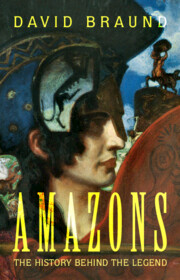Refine search
Actions for selected content:
2 results

Amazons
- The History Behind the Legend
-
- Published online:
- 26 March 2025
- Print publication:
- 24 April 2025
Chapter 6 - Chimeras of Classicism in Dionysius of Halicarnassus’ Reception of the Athenian Funeral Orations
- from Part II - Classical Philosophy and Rhetoric, and Their Reception
-
-
- Book:
- Reception in the Greco-Roman World
- Published online:
- 05 June 2021
- Print publication:
- 27 May 2021, pp 145-166
-
- Chapter
- Export citation
